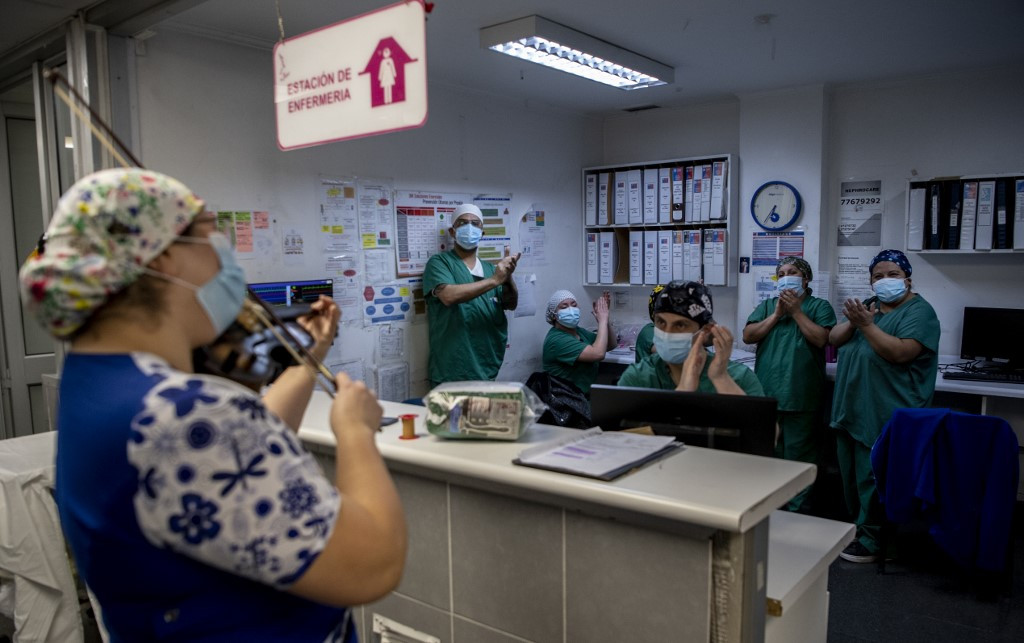Chile’s democratic and institutional path
The Convention shall respect international treaties adopted by Chile, including human rights and economic aspects, such as the safeguarding of foreign investments and private property.
Change Size

O
n Oct. 25, 2020, just over a year after the massive demonstrations in our nation, Chileans voted to write a new Constitution, a process that, once again, bolsters the strong democratic tradition of the Chilean nation and that shows the proud commitment of our country with a peaceful and institutional conflict resolution.
By 78 percent voting “approve”, Chileans have decided through a democratic process in favor of the elaboration of a new constitution that ends the one imposed during the dictatorship of Augusto Pinochet. “This plebiscite is not the end; it is the beginning of a path we should all undertake together” President Sebastián Piñera said in an address from the presidential palace. “Until now, the Constitution has divided us” he added. “As of today, we should all cooperate to make the new Constitution become one home for all of us”.
At the same time, citizens overwhelmingly also opted for a fully elected constitutional convention to elaborate the new document. This organ will be integrated by 155 newly appointed representatives of which 50 percent will be women, being the first body in the world to draft a national constitution with full gender parity.
Political factions are still discussing the number and mechanisms for indigenous people to have reserved seats. Elections will be held in April 2021 to choose the representatives.
Once chosen, the body in charge should draft and adopt a proposed text for a new constitution within nine months; this deadline may be extended, one time only, for three more months. According to how it was defined in the “Agreement for Social Peace and the New Constitution”, two thirds of the representatives shall agree the new document to present it for a new ballot, which should take place in 2022 and will decide whether to approve or reject the proposal.
The process has been and will remain within a strict institutional framework and in no case the Convention is entitled to assume any other capacity than the one it was created for.
As a matter of fact, the electoral calendar, including presidential ballot, has remained unchanged for the next year. The Convention shall respect international treaties adopted by Chile, including human rights and economic aspects, such as the safeguarding of foreign investments and private property.
On Oct. 18, 2019, as in many other places of the world, a social movement arose in Chile over a small rise in subway fares, growing to hundreds of thousands of demonstrators who took to the streets demanding the authorities address inequality, increase wages and pensions and improve health care and education, among other things. The turmoil escalated into a major political debate, which was steered into an agreement - at the request of President Piñera reached by all political forces with the sole exception of the Communist Party - to call for a plebiscite and write a new constitution.
After the end of the dictatorship in 1990, Chile’s market-friendly business environment attracted big amounts of foreign investment. From that moment on, the country underwent great transformations, the most important of which was poverty reduction. In turn, indicators of human development increased notably. Even inequality – one of the most persistent features of Latin American countries – diminished ostensibly. A sustained increase in per capita income resulted in a social phenomenon that was very favorable for the country’s future political stability: the emergence of a strong middle class
Information from the World Bank Global Governance Indicators reflects this as well. In all the indicators – rule of law, political stability, government effectiveness, accountability, regulatory quality, control of corruption - Chile ranks in a good position.
Furthermore, in comparative terms, the balance is even better: Chile exceeds countries in the region by far, and even compares favorably to some OECD countries. The institutional capital of Chile is the platform that will allow to face its challenges, solve its political problems and project itself into the future.
One year after the outbreak, Chile has recovered its normality and is preparing to face its next challenges: moving toward a stronger democracy characterized by high citizen participation and respect for its institutions; promoting a more integrated society, with the full incorporation of its most vulnerable sectors and native peoples; driving a more inclusive economy with less inequalities and more equal opportunities and achieving a stronger integration to the world, with an accent on its contributions to the international community.
During the last 30 years, Chile has acquired a well-earned global reputation due to a history of progress based on the strength of its democracy, the resilience of its people, compliance with its commitments, the reliability of its public policies, the solidity of its institutions and respect for the rule of law.
All these factors are present in today’s Chile and are the base on which it projects itself into the future.
***
The writer is ambassador of Chile to Indonesia









